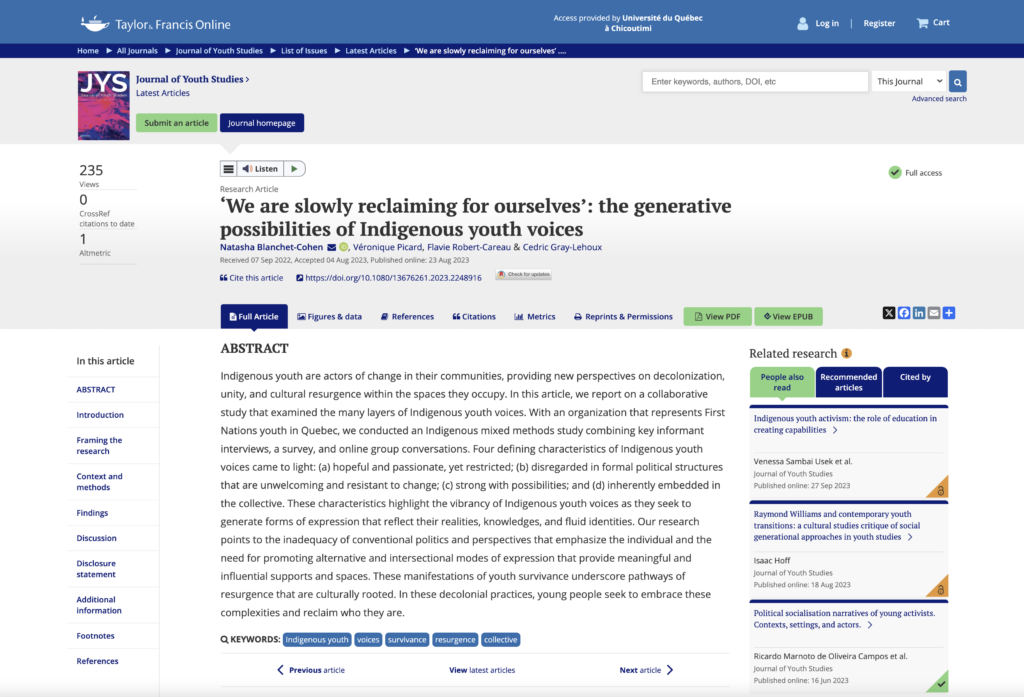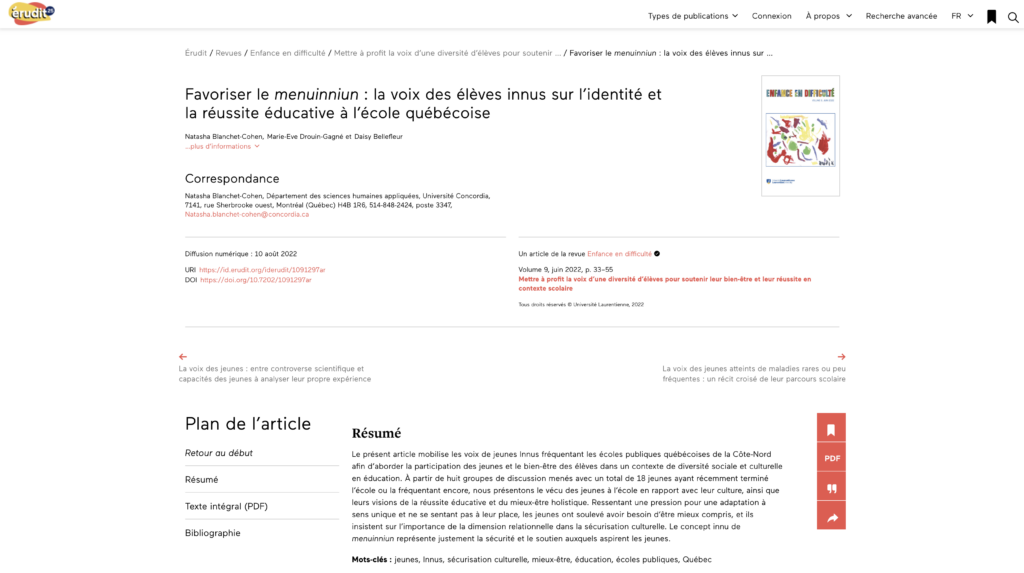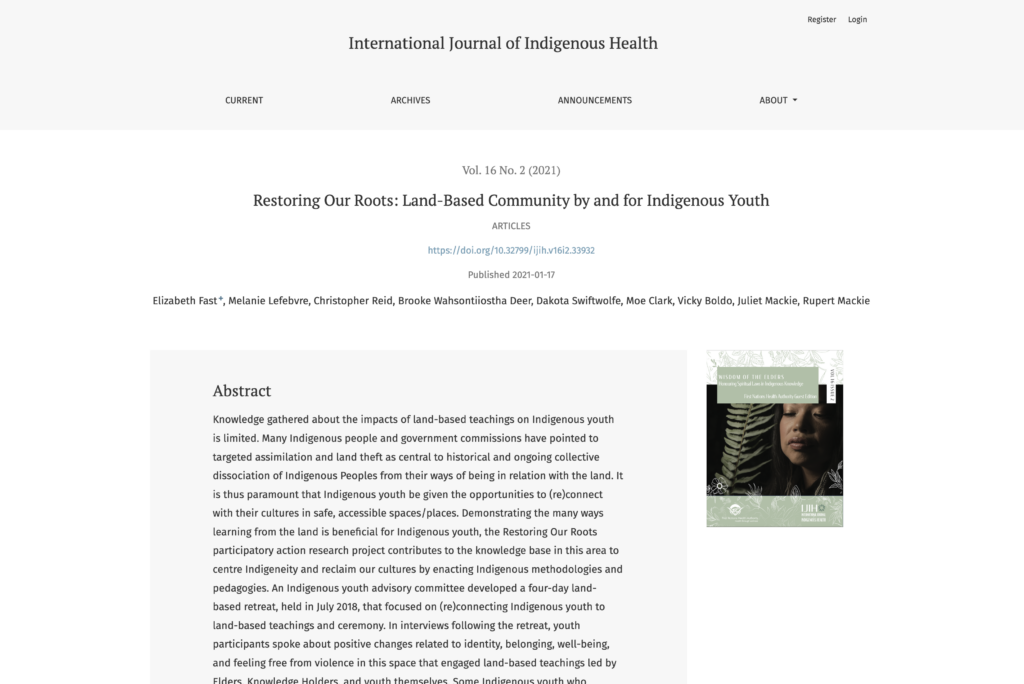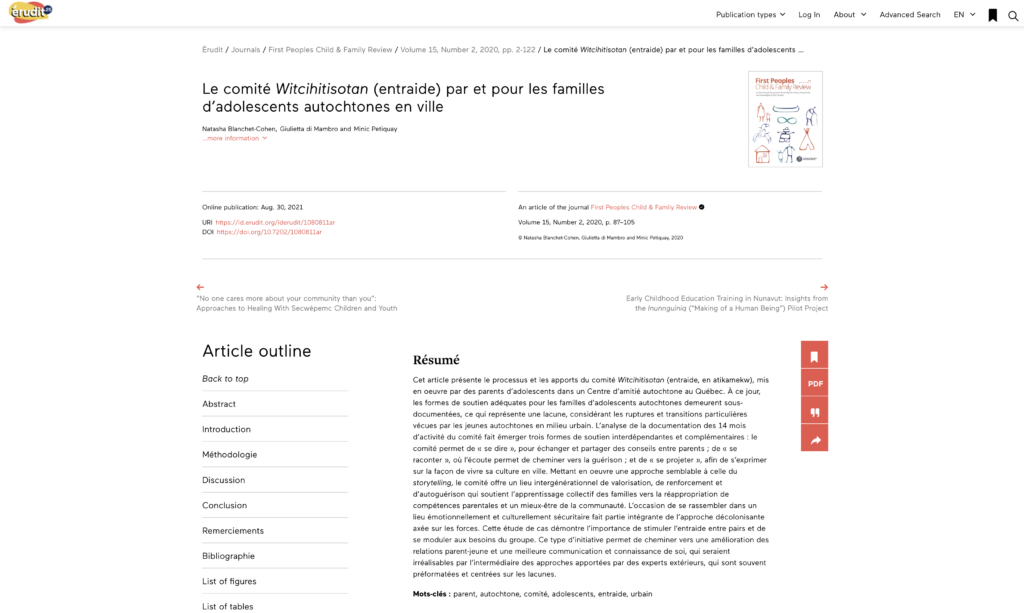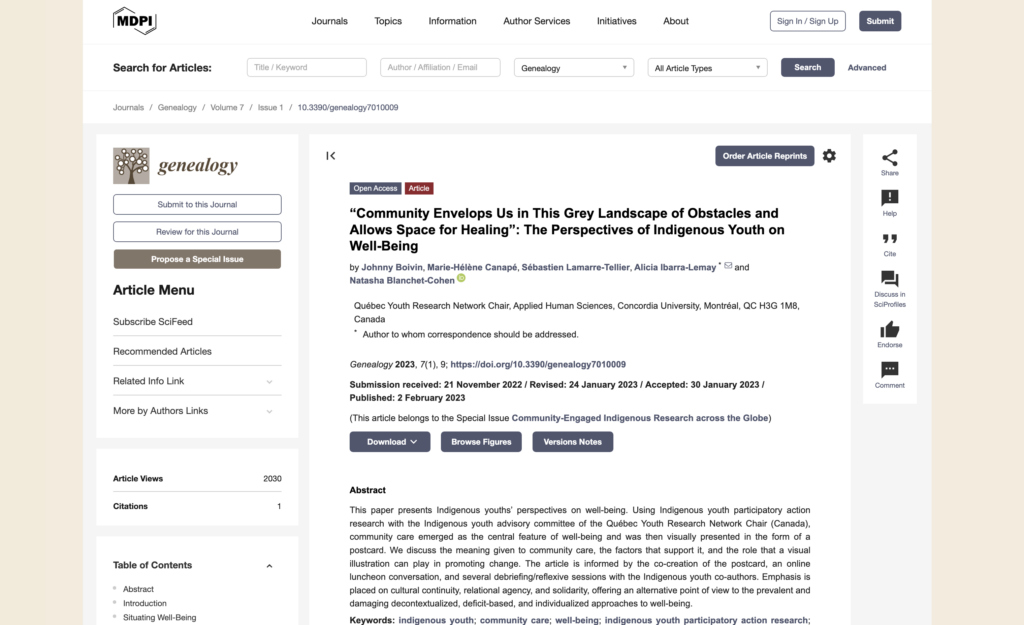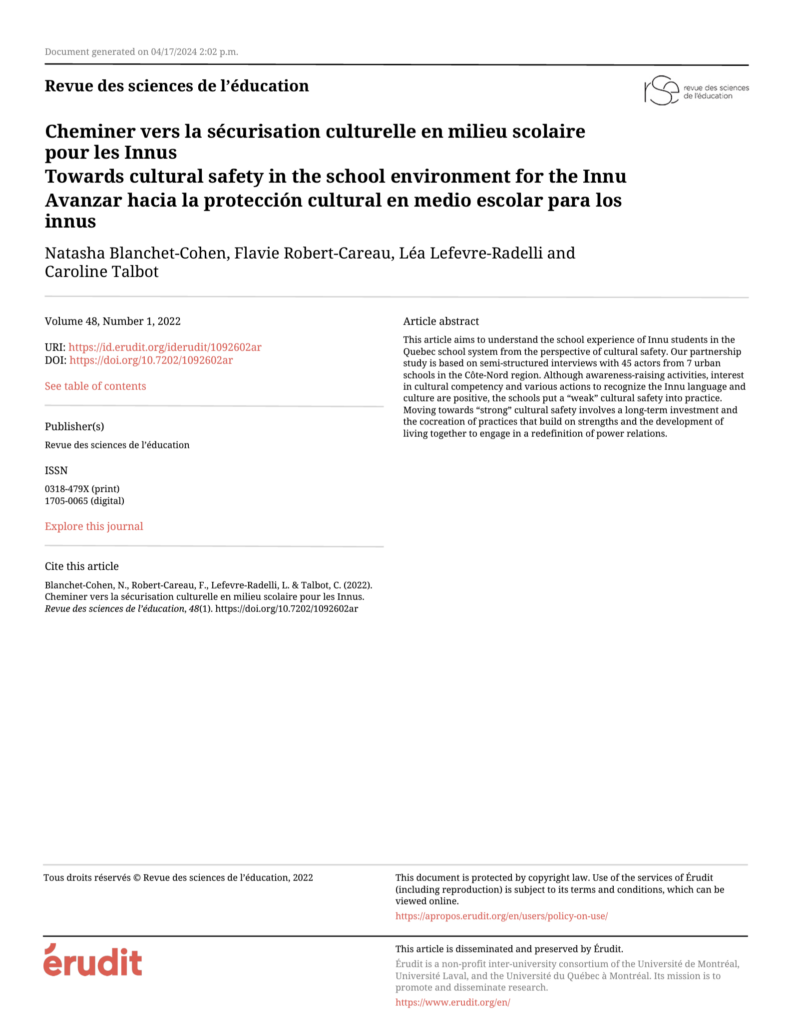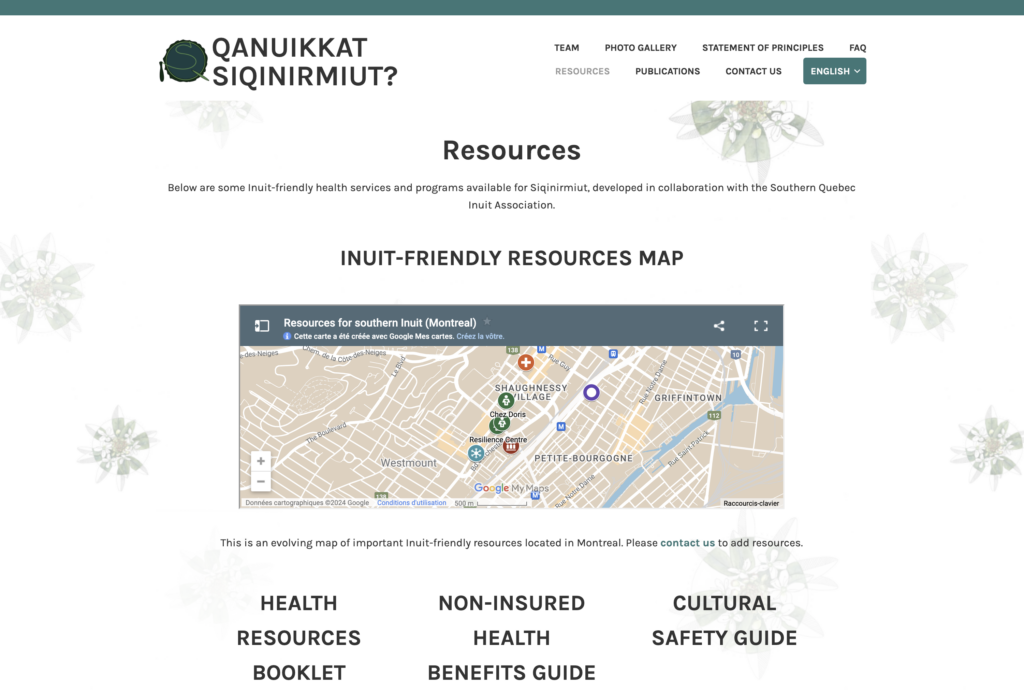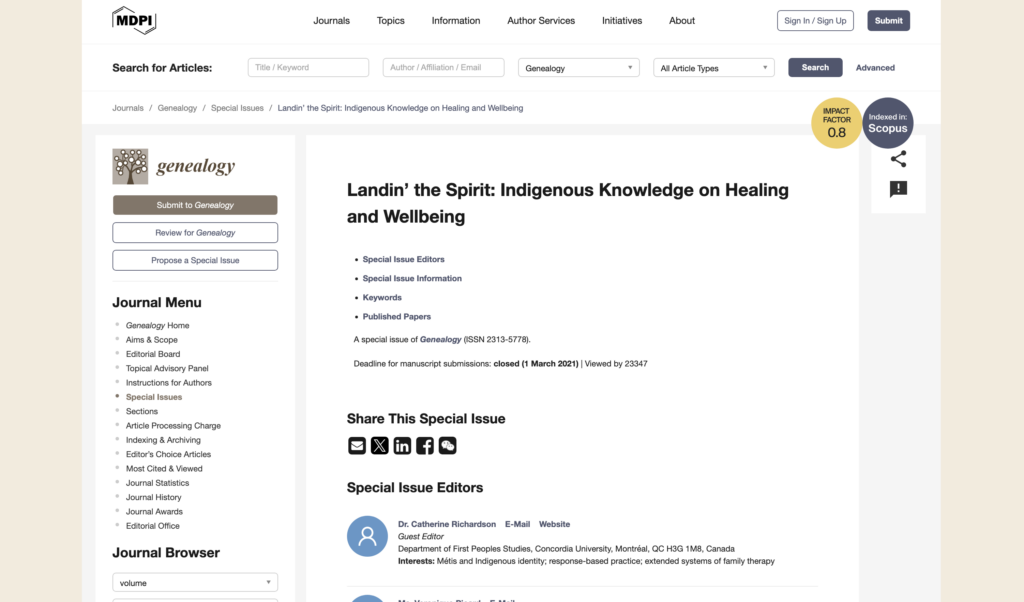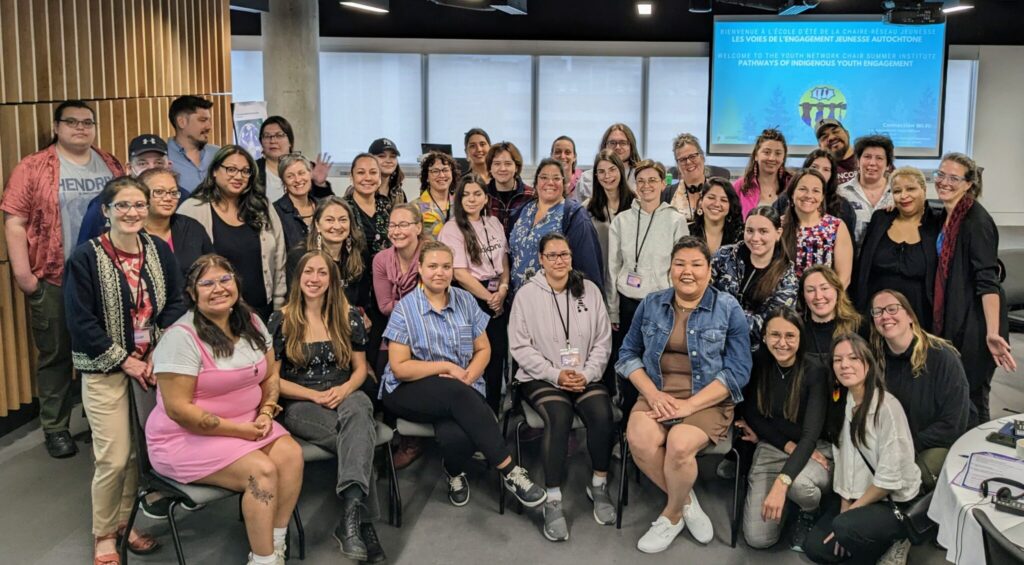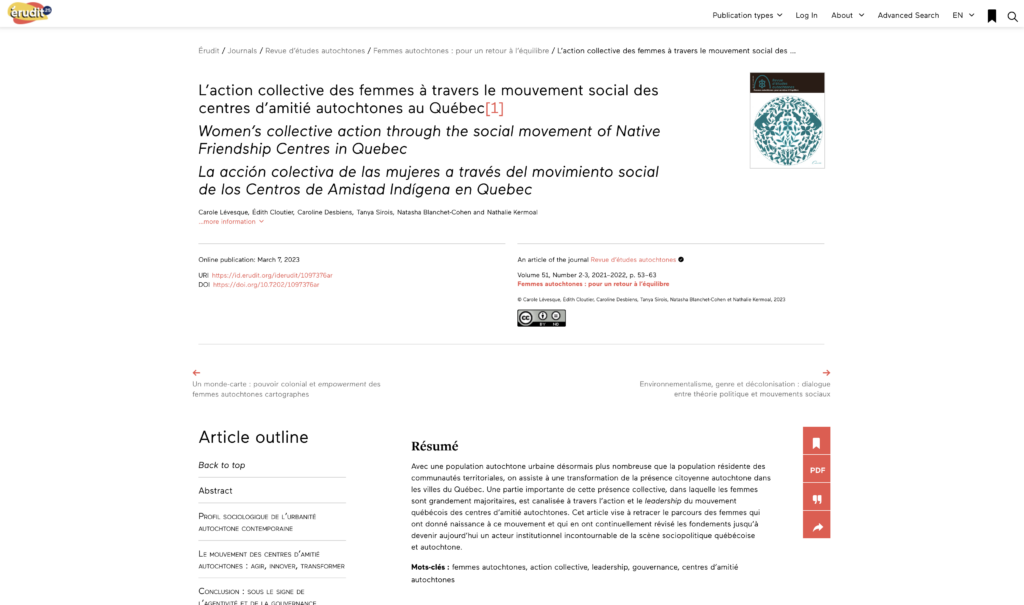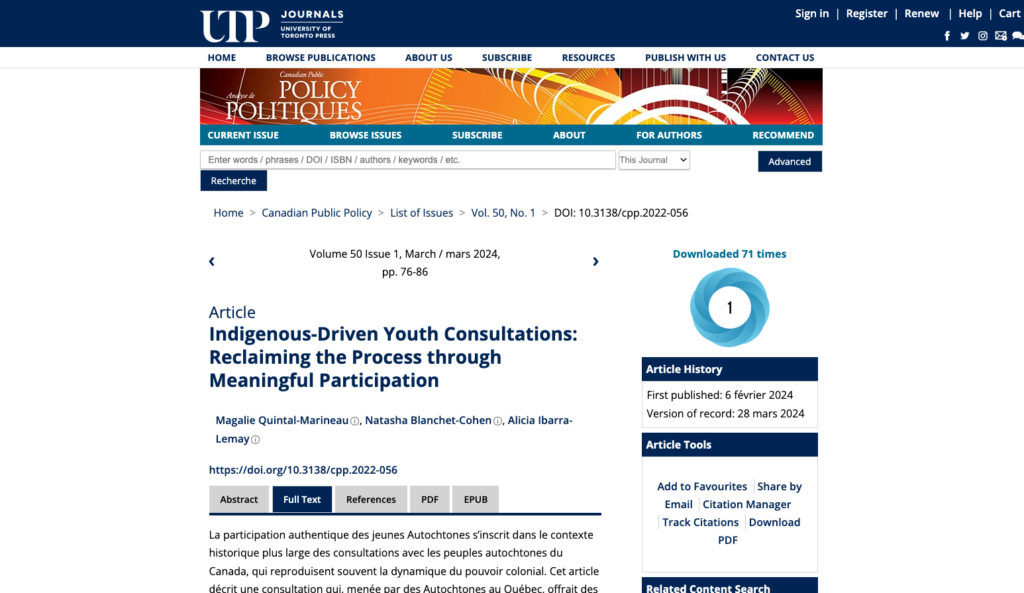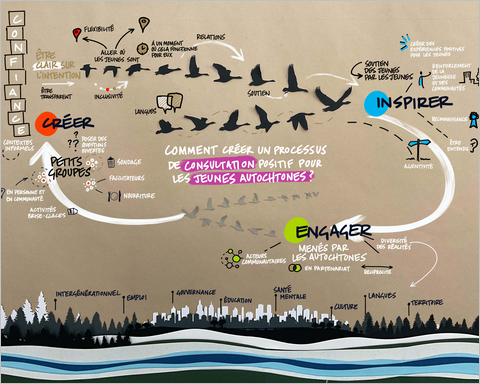Notice bibliographique
Abdel-Baki, A., Aubin, D., Morisseau-Guillot, R., Lal, S., Dupont, M.E., Bauco, P., Shah, J., Joober, R., Boksa, P., Malla, A. et Lyer, S.N. (2019). Improving Mental Health Services for Homeless Youth in Downtown Montreal, Canada: Partnership between a Local Network and ACCESS Open Minds, a National Services Transformation Research Initiative. Early Intervention in Psychiatry, 13(1), 20-28.
Résumé
Aim
In many parts of the world, there is growing concern about youth homelessness. Homeless youth are particularly vulnerable to psychological distress, substance use and mental disorders, and premature mortality caused by suicide and drug overdose. However, their access to and use of mental health care is very limited.
Methods
The Réseau d’intervention de proximité auprès des jeunes (RIPAJ), a Montreal network of over 20 community stakeholders providing a wide array of cohesive services, was created to ease homeless youth’s access to mental health and psychosocial services. Its philosophy is that there should be no “wrong door” or “wrong timing” for youth seeking help. In 2014, the network partnered with the pan‐Canadian transformational research initiative, ACCESS Esprits ouverts.
Results
Created through this partnership, ACCESS Esprits ouverts RIPAJ has been promoting early identification through outreach activities targeting homeless youth and agencies that serve them. An ACCESS Clinician was hired to promote and rapidly respond to help‐seeking and referrals. By strengthening connections within RIPAJ and using system navigation, the site is working to facilitate youth’s access to timely appropriate care and eliminate age‐based transitions between services. A notable feature of our program, that is not usually evident in homelessness services, has been the engagement of the youth in service planning and design and the encouragement of contact with families and/or friends.
Conclusion
Challenges remain including eliminating any remaining age‐related transitions of care between adolescent and adult services; and the sustainability of services transformation and network coordination. Nonetheless, this program serves as an example of an innovative, much‐needed, community‐oriented model for improving access to mental health care for homeless youth.
Hyperlien
https://doi.org/10.1111/eip.12814Publication du membre
Dre Amal Abdel-BakiAppartenance aux volets














